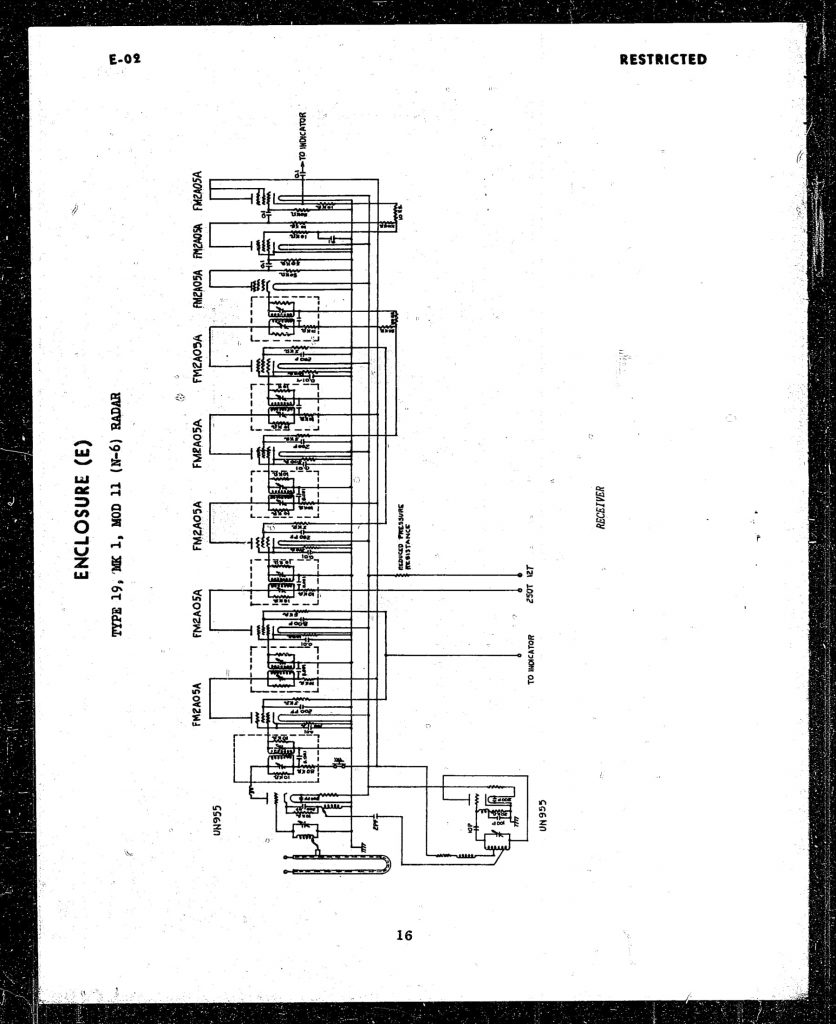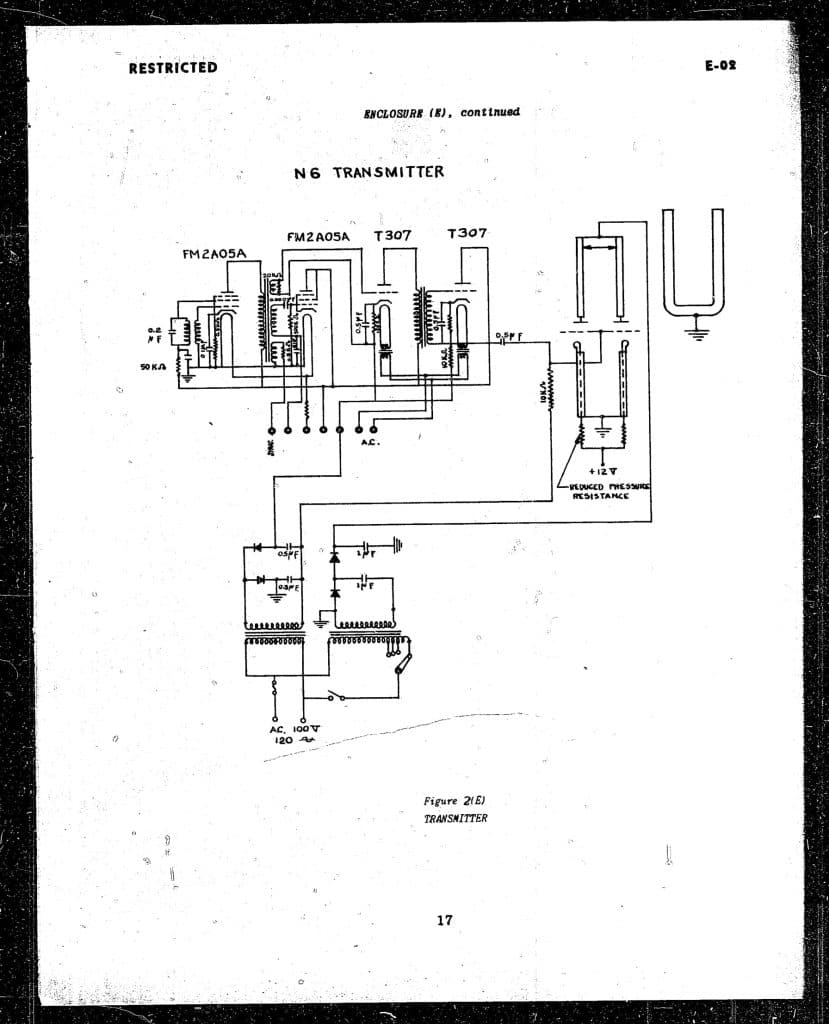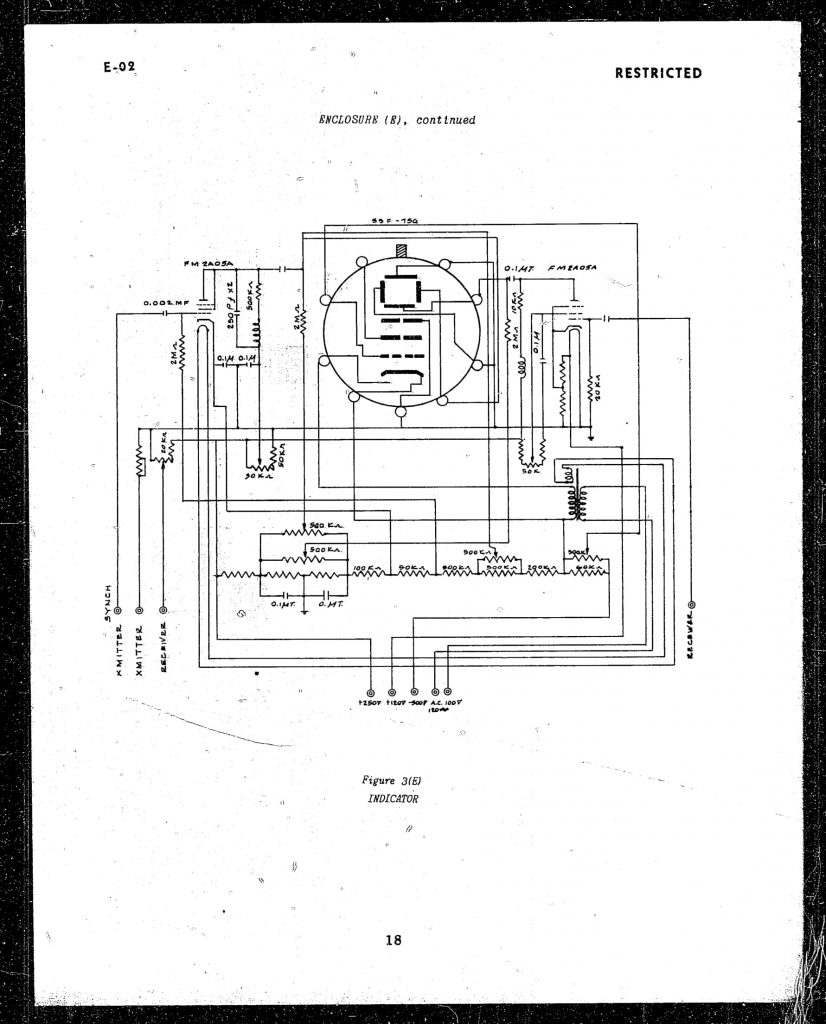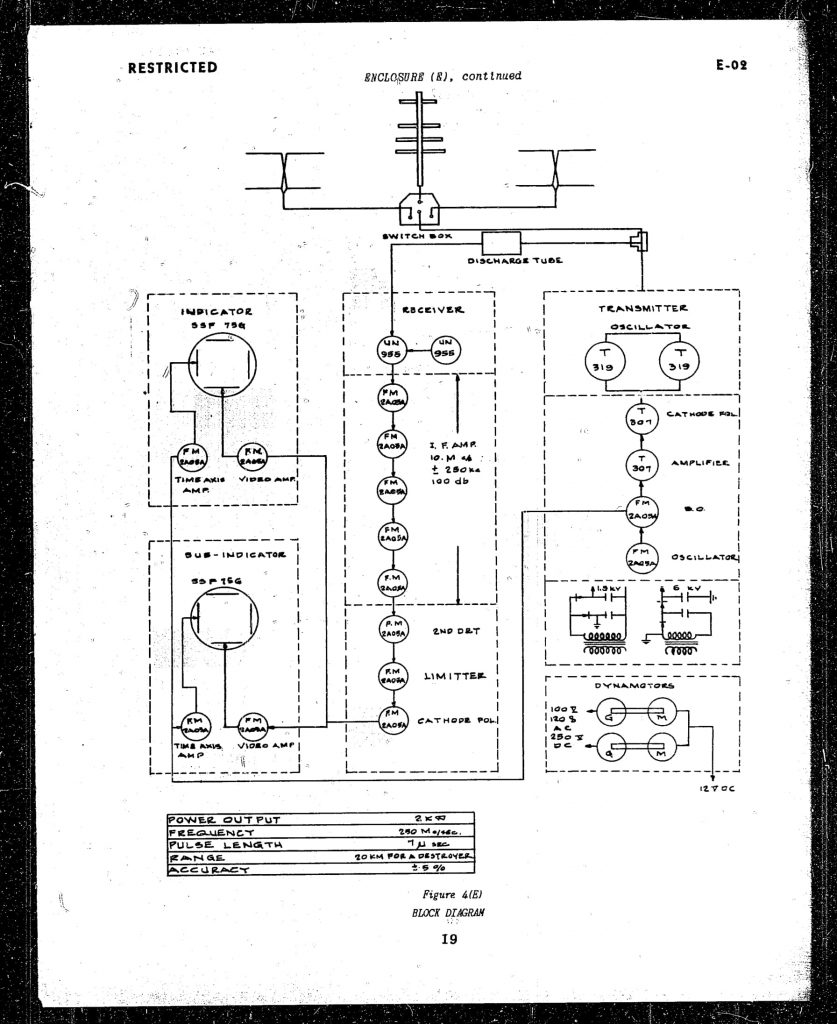十九試空一号電波探信儀十一型 (19-shi kū-1 Gō Denpa Tanshingi 10-gata ta, Protoype 19 Ku 1 Radio Probe Model 4). The N-6 was a prototype radar to be used by the Japanese Navy with a range of 50% of the H-6. It was intended for small patrol and search planes. Research started March 1943 by Nihon Musen Co. and 20 devices were constructed. Testing started a year later in march 1944. However difficulty arose in the R.F. receiving end of the set and research was stopped somewhere in November or October 1944. No N-6’es were used in combat.
Reports of the U.S. Naval Technical Mission to Japan
Technical specifications
| 十九試空一号電波探信儀十一型/ Protoype 19 Ku 1 Radio Probe Model 4 |
||||
|---|---|---|---|---|
| Designation | H-6 | |||
| Object | Patrol and Search | |||
| Research | started | March 1943 | ||
| Finished | Late 1944 | |||
| Operational status | Not yet used | |||
| Installation | Small Aircraft. Observer’s Seat | |||
| Frequency | 1.2 meter / 250 kHz | |||
| Power Output (Peak) | 2 kw | |||
| Pulse Length | 5 µs | |||
| Repetition Frequency | 1000 cycles per second | |||
| Weight | 60 kg (unverified) | |||
| Units build | 20 | |||
| Transmitter | Oscillation Circuit | Modulated Oscillator | ||
| Oscillator Valve | T-319 x2 | |||
| Receiver | Intermed. Freq. | 10 mc | ||
| Detector | 1st UN-954 | 2nd FM-2A05A | ||
| Local ocillator | UN-955 | |||
| Scope Representation |
Diameter | 75 mm | ||
| Scanning Axis | Logarithmic | |||
| Scale | Mechanical | |||
| Antenna | Type | Head: Yagi | Sides: Folded Doublet | |
| Gain | 16db | 6.5db | ||
| Beam Angle | Horiz. | θƒ = 30° | θƒ = 28° | |
| Vertical | θƒ = 35° | θƒ = 30° | ||
| Max. Range (Max.Effective Scale) | 150 km theoretical 40 km against large ships 30 km against air planes |
|||
| Minimum Distance | 2.5 km at 1000 m | |||
| Accuracy of Range | ≃± 5% | |||
| Distance Discrimination | 1.5~2 km | |||
| Accuracy of Bearing | ± 3° | |||
| Angle Discrimination | ≃ 60° | |||
| No. Of Operators | Observer | |||
Sources
- Ishiguro, R., Januszewski, T., & Karnas, D. (2018). Japanese anti-submarine aircraft in the Pacific War. Sandomierz: Stratus. ISBN 978-8365281395.
- A short survey of japanese radar Volume 1
- A short survey of japanese radar Volume 3
- Reports of the U.S. Naval Technical Mission to Japan, 1945-1946. Series E-02 Japanese Airborne Radar



